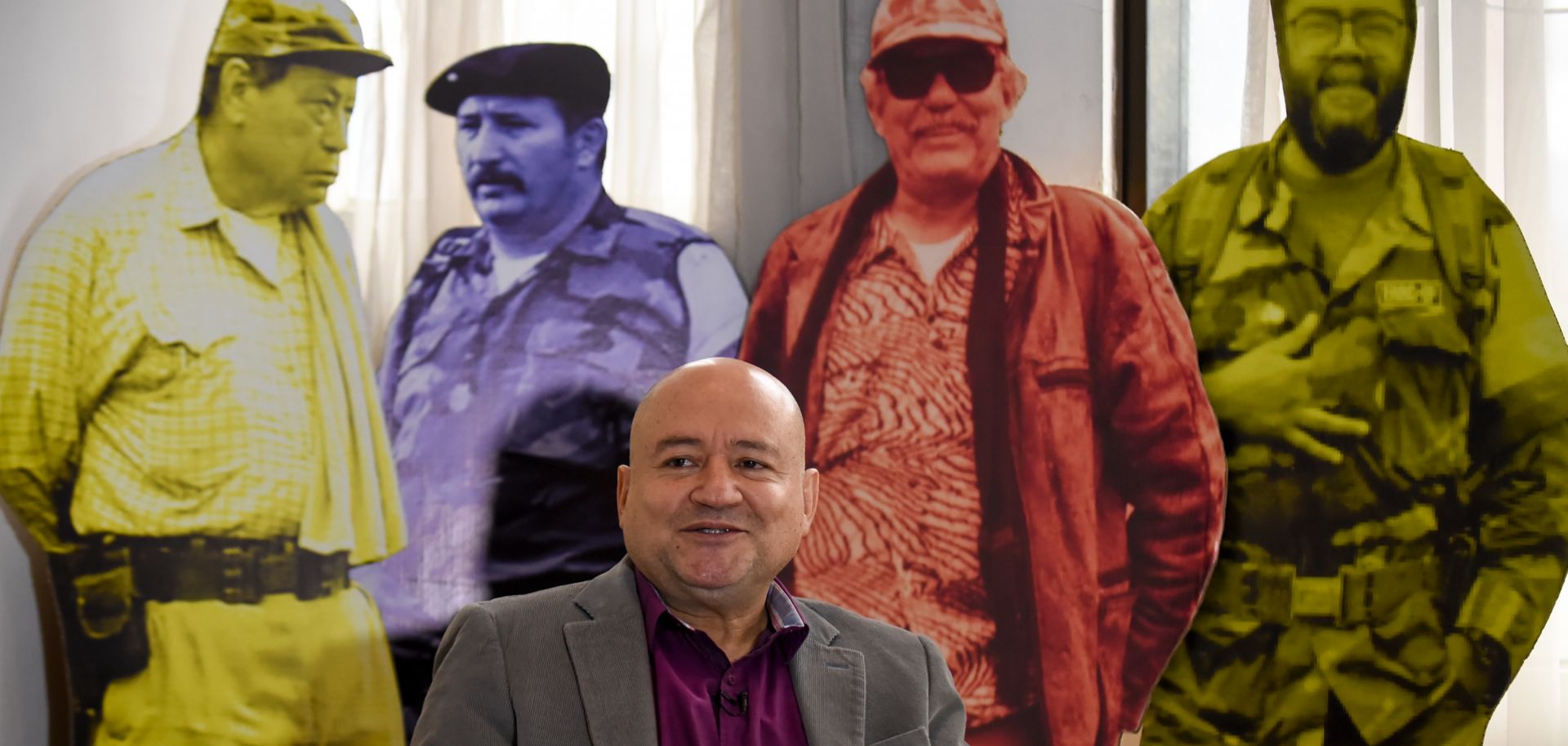ASSESSMENTS
In Colombia, FARC Suits Up for a New Kind of Battle
Aug 21, 2017 | 21:38 GMT

FARC commander Carlos Lozada speaks in front of the images of late FARC leaders Manuel Marulanda Velez, Jorge Briceno Suarez, Jacobo Arenas and Alfonso Cano.
(RAUL ARBOLEDA/AFP/Getty Images)
Forecast Highlights
- The Revolutionary Armed Forces of Colombia (FARC) will disband and form a political party as part of its peace agreement with the government, receiving at least five seats in the Chamber of Representatives and five seats in the Senate. Its allies will also have the opportunity to contest seats in 16 electoral districts.
- Given its small size and low popularity, the new FARC party will have little immediate influence over Colombian politics.
- Even so, the former rebels may hold enough seats in the lower house to trade votes for public works in their electoral districts.
Subscribe Now
SubscribeAlready have an account?
